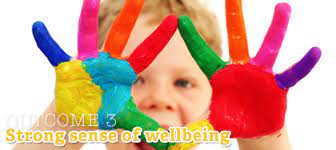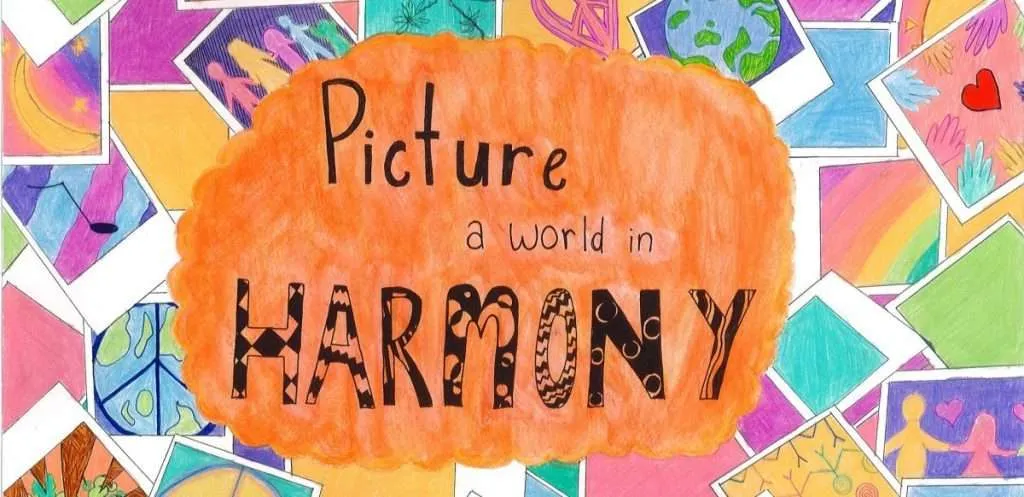Here are the sub-outcomes, evidence of when children can achieve them, and how educators can help children achieve EYLF Learning outcome 3: Children have a strong sense of well-being.
Children who are confident and optimistic will maximize their learning potential. It promotes children’s natural curiosity, sense of agency, and desire to connect with others. A person’s wellbeing includes physical health, happiness, satisfaction, and successful social functioning. It affects the way that children interact with their environment.
Learning Outcome 3: Children Have A Strong Sense Of Wellbeing
3.1 The children become more confident in their social and emotional well-being.
It is obvious when children:
- Demonstrate trust and confidence.
- Be available to others whenever you are in distress, confusion, or frustration.
- Share humor, satisfaction, and happiness.
- Celebrate their achievements as well as those of others.
- Cooperation and collaboration with others are becoming more common.
- Enjoy moments of solitude.
- Recognize their achievements
- Make choices, accept challenges, and take calculated risks.
- Show an increasing ability to self-regulate, understand and manage emotions in a way that reflects the needs and feelings of others.
- Please share your successes and create new learning opportunities in Standard Australian English or their native language.
- Accept and acknowledge the affirmation
- Assert their independence and capabilities while increasing awareness of other people’s needs and rights.
- Recognize their contributions to projects and shared experiences.
Teachers can promote this learning through:
- Show genuine affection, respect, and understanding for all children.
- Document the achievements of children and share them with their families.
- Ensure that children feel proud of their efforts and achievements.
- Promote children’s sense of belonging, connection, and well-being.
- Encourage and challenge children to persevere in their tasks and play.
- Build on and expand children’s ideas.
- Maintain high expectations for each child.
- Value children’s decision-making.
- Welcome children and families to share aspects of their spiritual and cultural lives.
- Talk to children about their feelings and reactions to events to help them understand emotional regulation and self-control.
- Recognize and affirm the children’s efforts and growth.
- Mediate or assist children in negotiating their rights concerning others’ rights.
3.2 The children take greater responsibility for their health and well-being.
It is obvious when children:
- Recognize and communicate your bodily needs.
- You are connected, happy, healthy, and safe.
- Engage in sensory-motor skills that are increasingly complex and patterns of movement.
- Combine gross and fine motor movements and balance to achieve increasingly complicated patterns of activities, including dance, creative motion, and drama.
- Explore and respond to the world using their sensory abilities and dispositions, with an increasing level of integration and skill.
- Move confidently through and around their environment, demonstrating spatial awareness.
- Use equipment and tools of management with increasing skill and competence. Respond to music, dance, and stories in traditional and contemporary styles.
- Show an increased awareness of healthy living and good nutrition.
- Show increasing competence and independence regarding personal hygiene, care, and safety and security for others.
- Show enthusiasm when participating in physical activity and negotiate the play space to ensure their and others’ safety.
Teachers can promote this learning through:
- Plan and engage in physical activities with your children, including games, dance, drama, and movement.
- Include familiar games and activities you know and love in your play by drawing on family members’ and friends’ expertise and experience.
- Provide various materials and tools to help children develop their gross and fine motor skills.
- Encourage children to learn about good hygiene.
- Share routines and schedules among children, their families, and the community to promote continuity in children’s health and hygiene.
- Discuss health and safety with your children, and include them in developing guidelines to keep everyone safe.
- Engage children in conversations, activities, and experiences encouraging healthy eating and lifestyles.
- Consider the pace of the day in the context of your community.
- Children can learn from your example and reinforce the importance of health, nutrition, and personal hygiene.
- Provide a variety of relaxing and active experiences to children throughout the day. Please support them in making appropriate choices about their participation.



